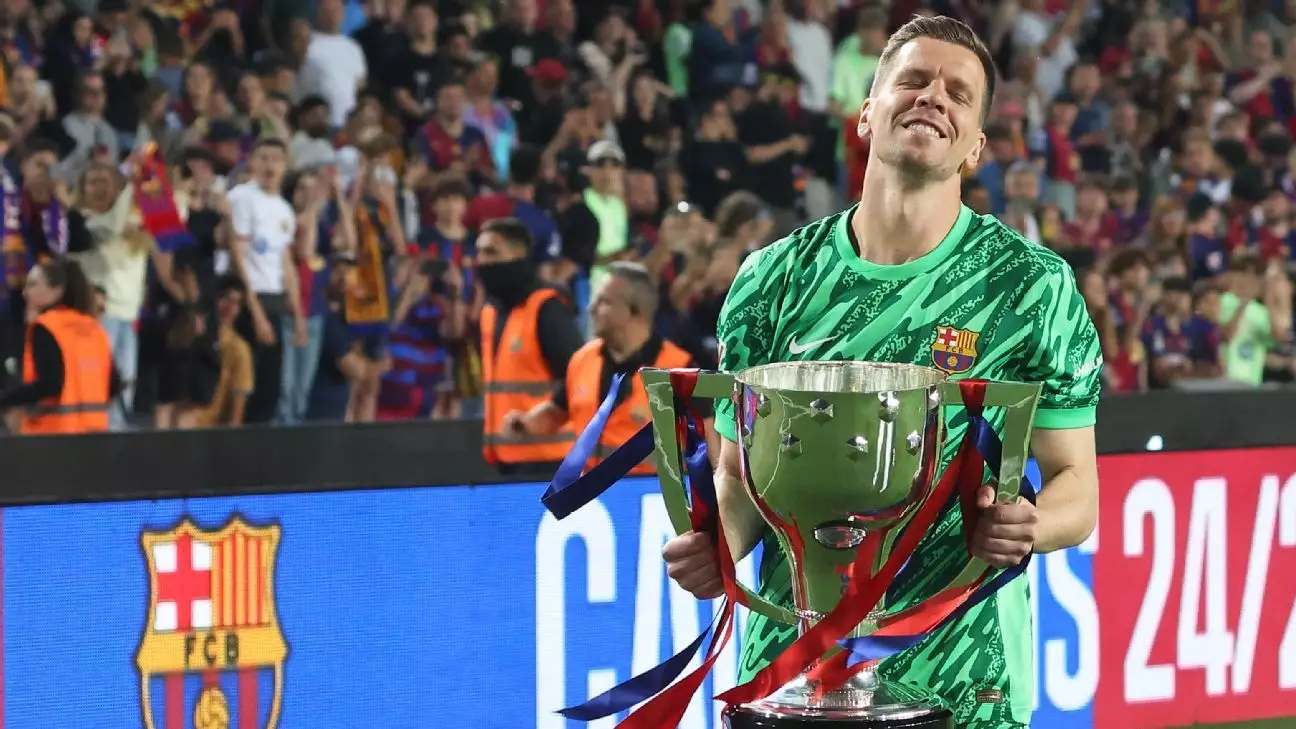Wojciech Szczęsny’s career trajectory exemplifies resilience and adaptability, qualities often underappreciated in the high-pressure realm of professional football. Beginning his journey at Arsenal, Szczęsny’s early potential was evident, yet he faced skepticism regarding his consistency. His subsequent loans to Brentford and Roma signified a period of seeking experience and validation. The decisive moment arrived when he joined Juventus in 2017, where he spent seven transformative years, honing his craft among Europe’s elite. Remarkably, his retirement in 2024 seemed like the end of an era, yet his unexpected return to football with Barcelona underscores his unwavering passion and belief in his abilities. Unlike many athletes who crumble under the weight of setbacks, Szczęsny has consistently reinvented himself, demonstrating that perseverance and a willingness to embrace change can redefine success.
The Impact of a Late-Career Revival
Szczęsny’s resurgence at Barcelona highlights an often-overlooked aspect of professional excellence: longevity driven by mental fortitude. His temporary stint as a backup after injury, followed by seizing the opportunity to prove himself, transformed perceptions about age and capability. With 30 appearances in a single season, Szczęsny helped Barcelona secure a domestic treble—an achievement that temporarily elevates his status among the club’s storied legends. This period of prominence reveals that resilience isn’t solely about avoiding setbacks but thriving despite them. Szczęsny’s ability to anchor a competitive team while balancing the expectations of veteran status, and facing emerging talents like Joan García and Marc-André ter Stegen, speaks to his strategic adaptability and mental toughness. His decision to extend his contract further demonstrates confidence in his evolving role and a commitment to contribute meaningfully, regardless of the hurdles.
Beyond the Pitch: An Honest Persona and Unconventional Narratives
What makes Szczęsny truly compelling isn’t merely his skills but his authenticity. Fans appreciate his humor, candidness, and willingness to share vulnerable truths, such as his smoking habit—a rarity among athletes who often maintain a polished persona. His openness humanizes him in a sports landscape often obsessed with perfection, allowing supporters to connect on a deeper level. Furthermore, his career decisions—retiring and then reversing course—highlight a reflective approach often missing in modern athletes driven by external pressures. Szczęsny’s choices reflect a deeper self-awareness and a prioritization of personal happiness and family stability, reminding us that professional pursuits should not overshadow individual well-being. His perseverance, coupled with honesty and humility, elevates him beyond a mere goalkeeper; he embodies the evolving archetype of a modern sportsman who values integrity as much as victory.

